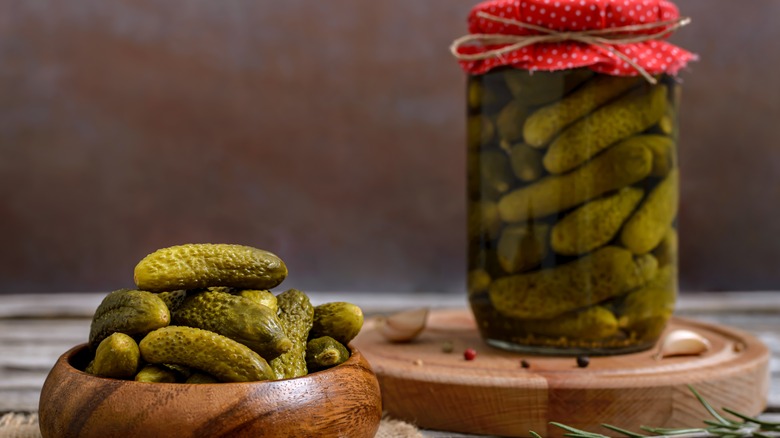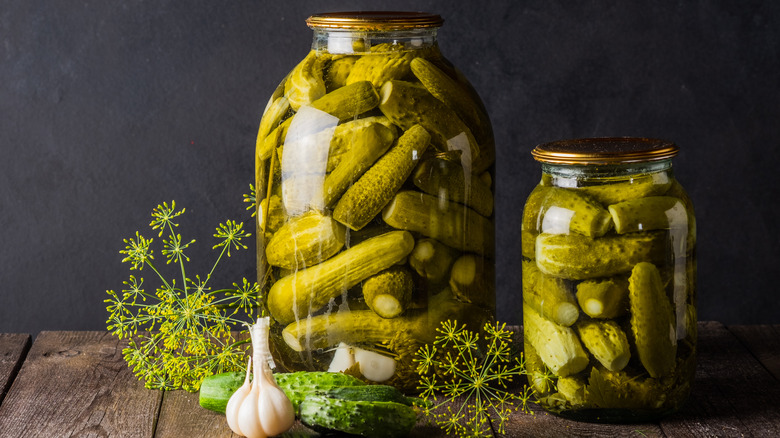Is There A Difference Between A Pickle And A Gherkin?
To understand the difference between pickles and gherkins, if there is one, we need to start with the basics. According to Preserve and Pickle, in the simplest sense, a pickle is any food preserved using acid. That said, many different kinds of fruits and vegetables can be pickled. Throughout North America, however, the word pickle has become commonly used for pickled cucumbers — usually dill pickles made from Cucumis sativis cucumbers that are large, white-fleshed, and have thick green skin (via Specialty Produce).
On the other hand, gherkins are a type of cucumber that is part of the Cucurbitaceae family. They are small and tend to average between 4 to 8 centimeters in length, essentially making them baby cucumbers. And they are known for their "crunchy, juicy consistency and hav[ing] a mild, green, and vegetal flavor," according to Specialty Produce. So, is there a difference between a pickle and a gherkin? Well, yes and no. Let's dive a little deeper.
What's the difference?
The confusion between pickles and gherkins mostly boils down to where you live. Foods Guy notes that initially, the name gherkin comes from gurken, a Dutch word meaning small pickled cucumber. In the U.S., says Delish, both large cucumbers and small gherkins can be called "pickles" once they are pickled. And pickling is the most common way that both varieties of cucumber get eaten, so this (sort of) makes sense. But this nomenclature business is made worse because in the U.K., India, and Australia, all pickles, regardless of size, are referred to as gherkins (via The Daring Kitchen). Unsurprisingly, this has led many to use the terms "pickle" and "gherkin" interchangeably. There are other cucumber varieties, like the Mexican cucamelon, but it's not what you'll see pickled in U.S. grocery stores. You will see one of the two species mentioned, harvested young before they can develop thin skins and seeds, giving — let's call them gherkins — their signature crunch.
Gherkins can be eaten in other ways, but the pickled form is most common, as they are not as mild as full-grown cucumbers, so they don't work as well in salads or sandwiches. They can be pickled spicy or sweet and pulped into relish. Now that you have some context, it's little surprise that these words are all used interchangeably. So, call them what you want, large or small, pickled cucumbers of any size are absolutely delicious.

